Read in English / 阅读语言 ไทย
![]() 简体中文
简体中文
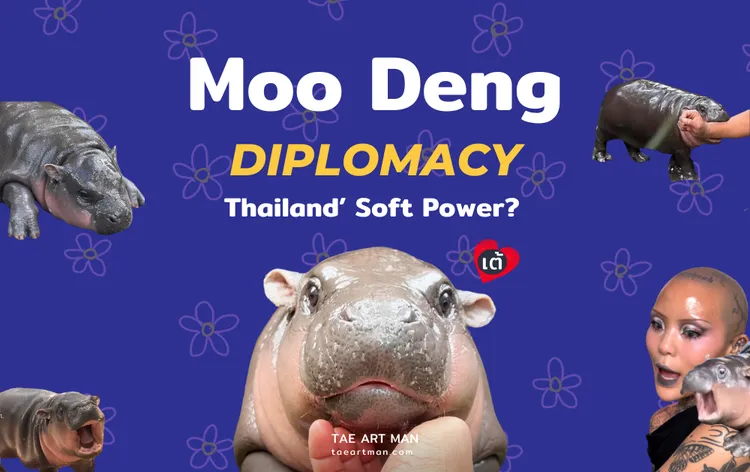
Moo Deng Phenomenon
The moment I watched a makeup tutorial inspired by Moo Deng, the pygmy hippo from Thailand which is current now internet rockstar, by renowned influencer Mei Pang, who have over 3 million followers on Instagram, I realized that the “Moo Deng phenomenon” had dominated every sector, from art and sports to cinema and beyond.
It’s clear that the world’s attention is now fixated on this little hippo from Khao Kheow Open Zoo in Thailand.
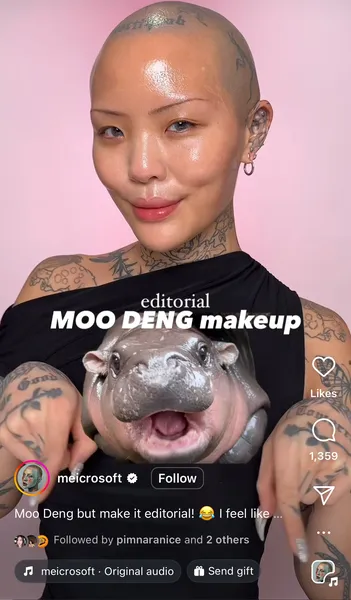
Professor Joseph S. Nye Jr., who first coined the term “Soft Power,” described it as:
“It is the ability to get what you want through attraction rather than coercion or payments”
This is precisely what we’re witnessing with Moo Deng. No one is forcing influencers to post about this adorable hippo; its charm and “attractive power” alone have propelled it from a Thai TikTok sensation to international media coverage.

Moo Deng Soft Power: An Opportunity for Thailand?
This situation is a “perfect setup” for Thailand. With the new government having already begun managing the country’s Soft Power with a substantial budget of over 150 millions USD, the next question is: How can Thailand leverage this moment to benefit the coutnry’s Soft Power?
Some might suggest heavily promoting Moo Deng as Soft Power to boost tourism, similar to Japan’s efforts with white Beluga whales (This pygmy hippo fight, Japan’s also sending their miniature hippo, Nemu Nemu, to compete with Moo Deng).
However, Soft Power isn’t just about jumping on trends and labeling anything popular as Soft Power. It requires strategic foresight, measurable outcomes, and a clear vision.
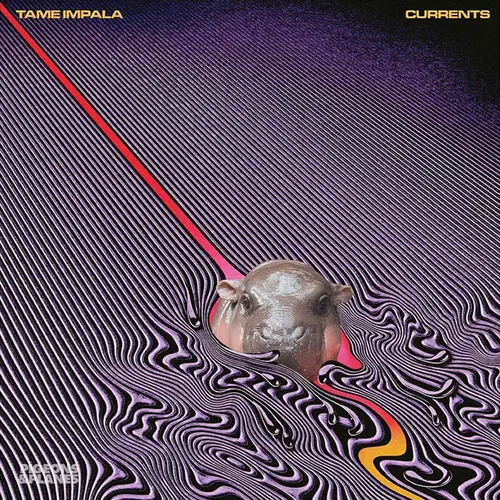
Zoo-based tourism featuring Moo Deng might draw interest, but can Thailand compete with major wildlife destinations like the United States or South Africa?
While promoting Moo Deng’s cuteness is possible, how long can it last? This path leads to what’s known as “Panda Diplomacy,” a famous case study of China’s Soft Power efforts with pandas. Diplomacy or the foreign policy and activities are one of the three components of Soft Power, as outlined by Joseph S. Nye Jr.
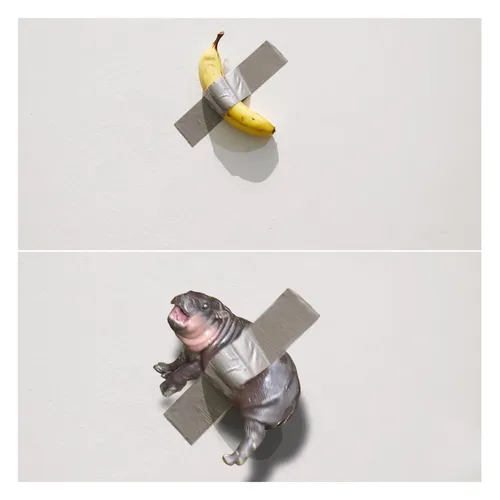
Thailand neighbor, Malaysia, followed the panda’s foot steps and initiate “Orangutan Diplomacy,” offering orangutans to countries that import its palm oil, as Malaysia is a major global exporter. This industry well known for threatening orangutans’ habitats, so Malaysia is using this approach to demonstrate their commitment to sustainable practices.
If Thailand were to pursue “Moo Deng Diplomacy,” The country would need to craft a compelling narrative that ties Moo Deng to Thailand’s identity. This process could take years.
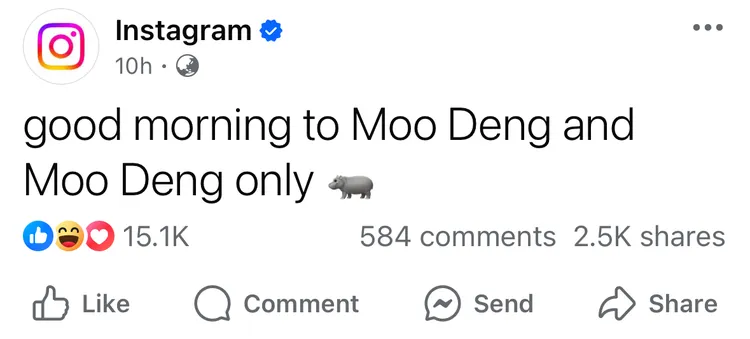
What Can Thailand Do with the Moo Deng Moment?
Thailand’s Soft Power committee has prioritized the “5 Fs”—Food, Festivals, Film, Fighting, and Fashion—and of these, Food appears to be the most viable avenue for immediate success. A Japanese feature on Nippon TV differentiated between Thai terms like “Moo Deng” (Bouncing pork ball- Bounce means deng in Thai), “Moo Daeng” (roasted pork), and “Moo Sap” (minced pork), highlighting an opportunity to boost Thailand’s culinary reputation—an already established Soft Power of Thailand.
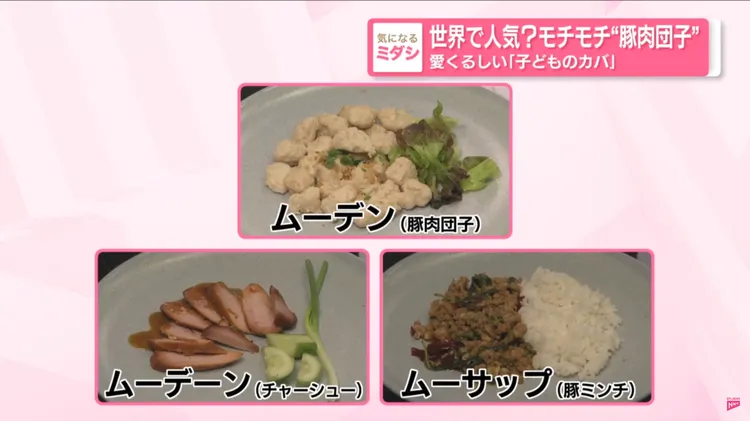
Everything has its cycle. The saying “Make hay while the sun shines” perfectly applies here – Thailand should seize this opportunity to benefit the nation rather than passively watching the trend pass by.
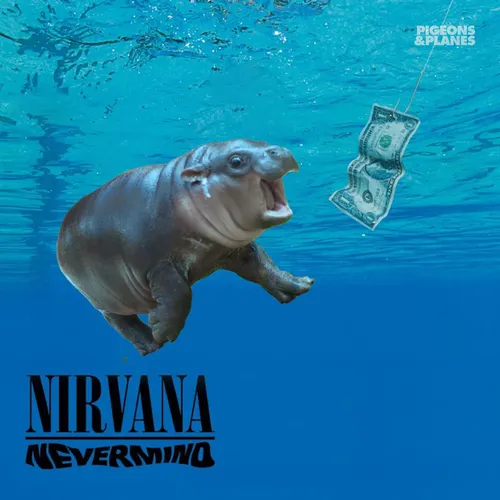
Remember, the investment in this Soft Power strategy amounts to over 150 millions USD could build numerous schools, fund thousands of medical professionals, or develop multiple infrastructure projects.
Let’s seize this opportunity as enthusiastically as Moo Deng tries to snap her zookeepers, and push Thailand Soft Power initiatives towards success.
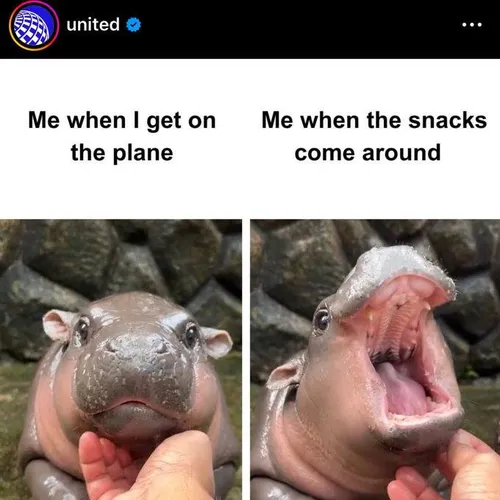
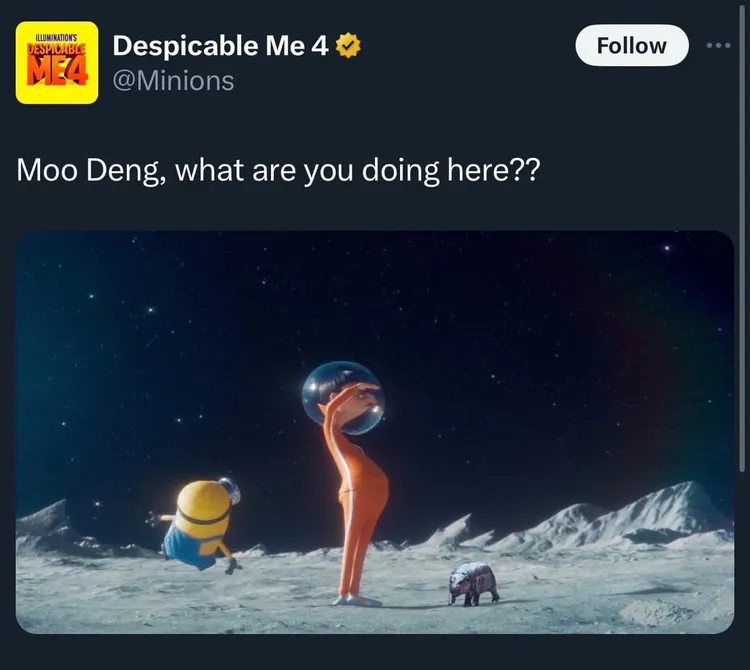
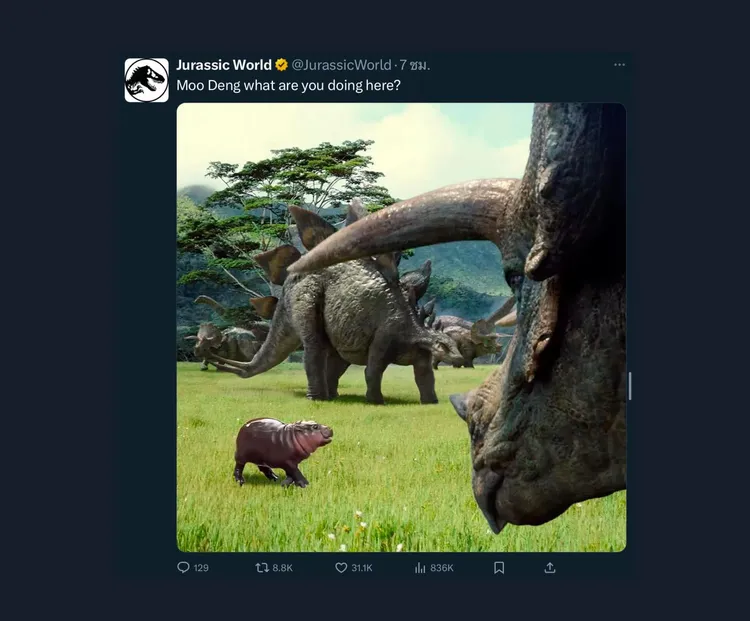
Story: Tae Art Man